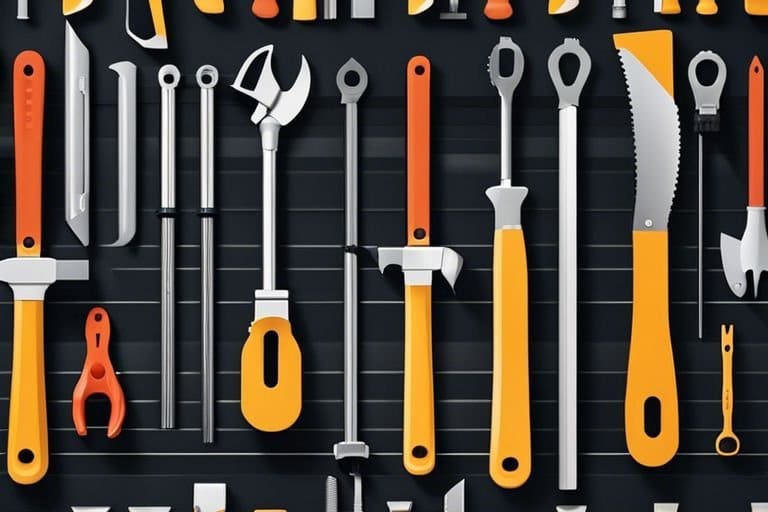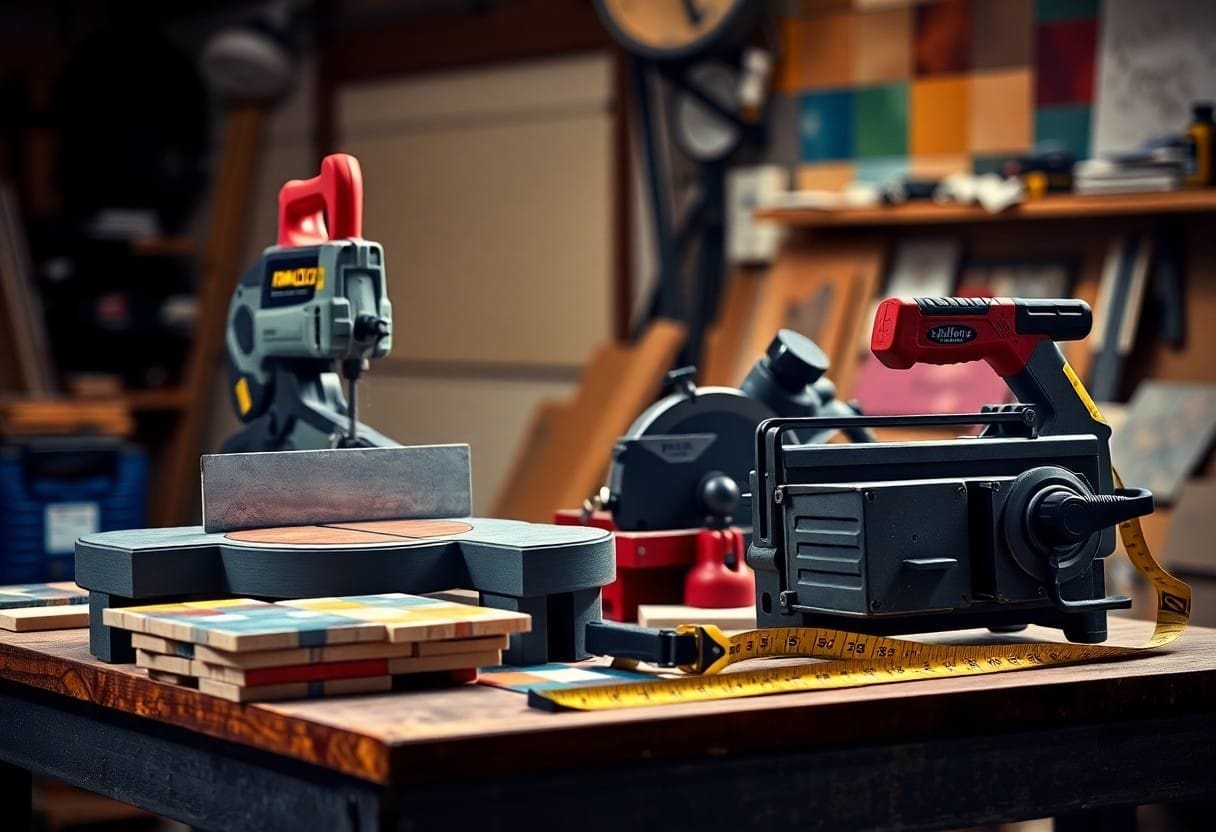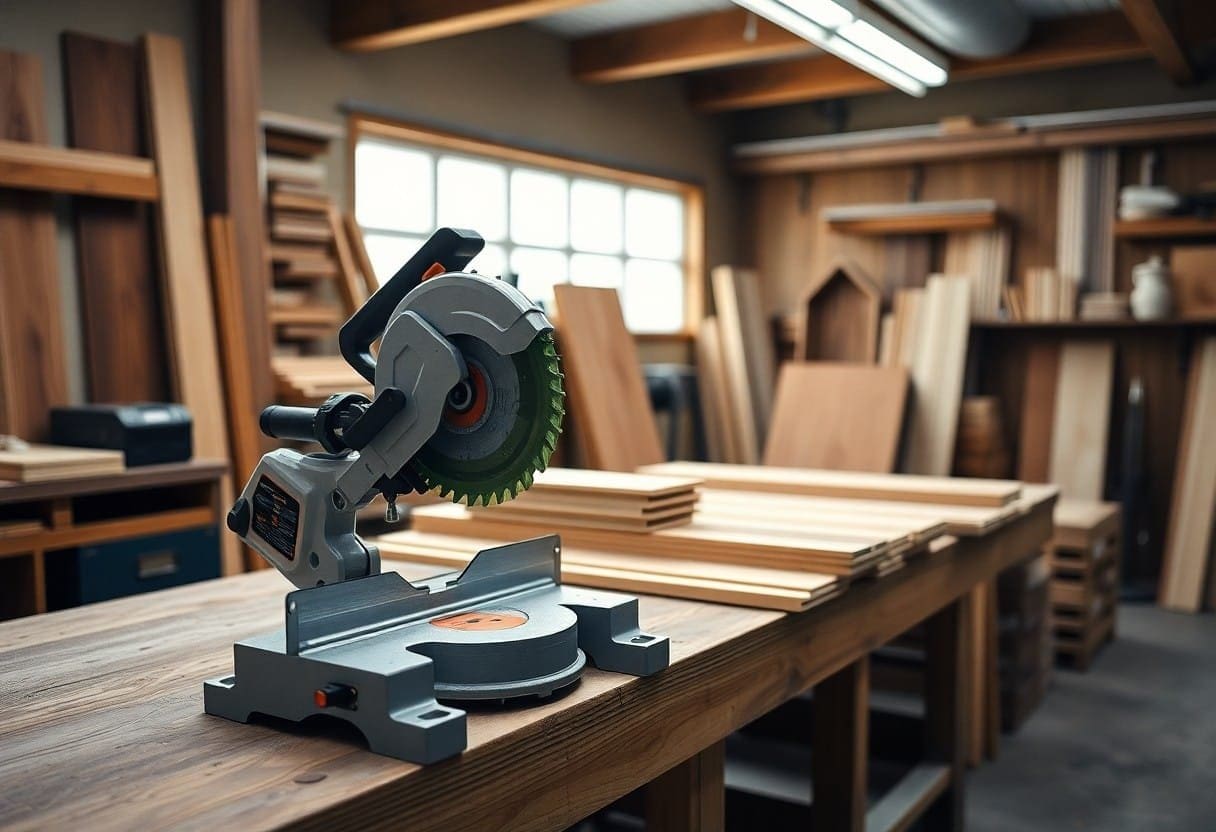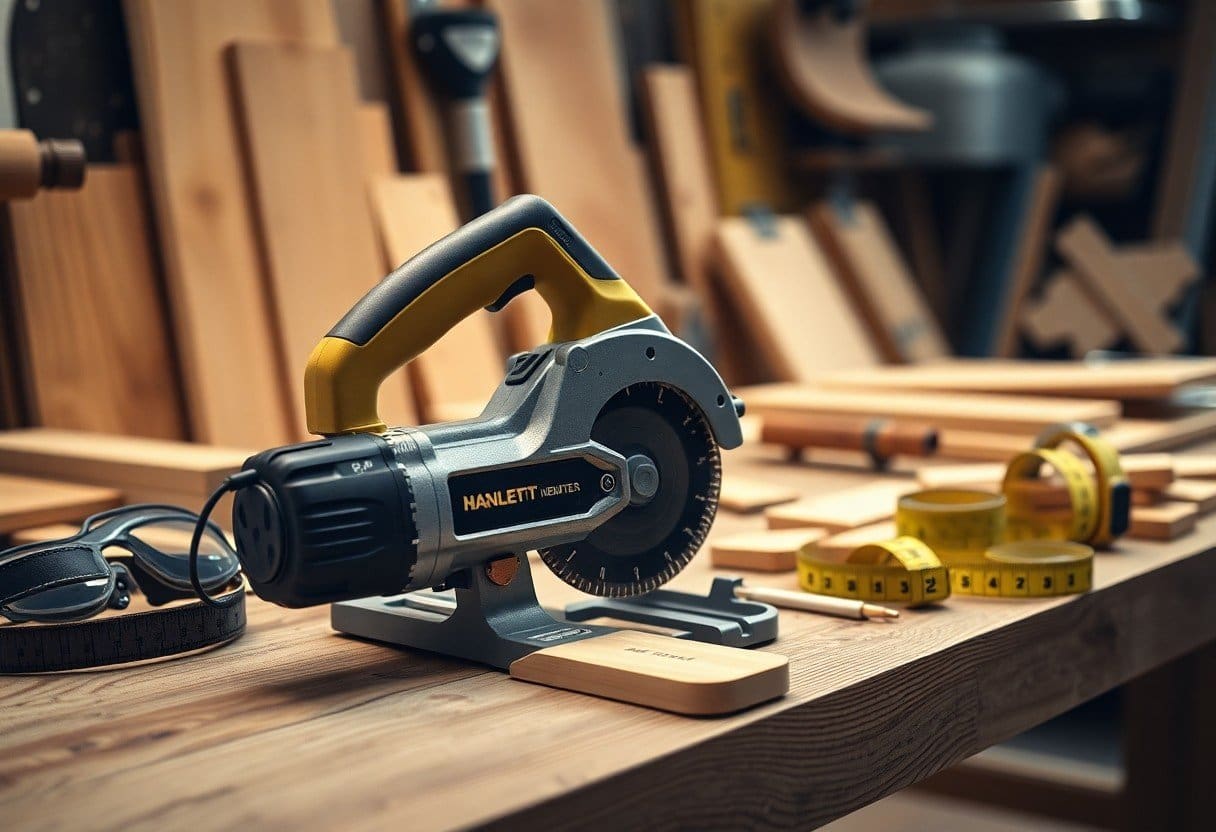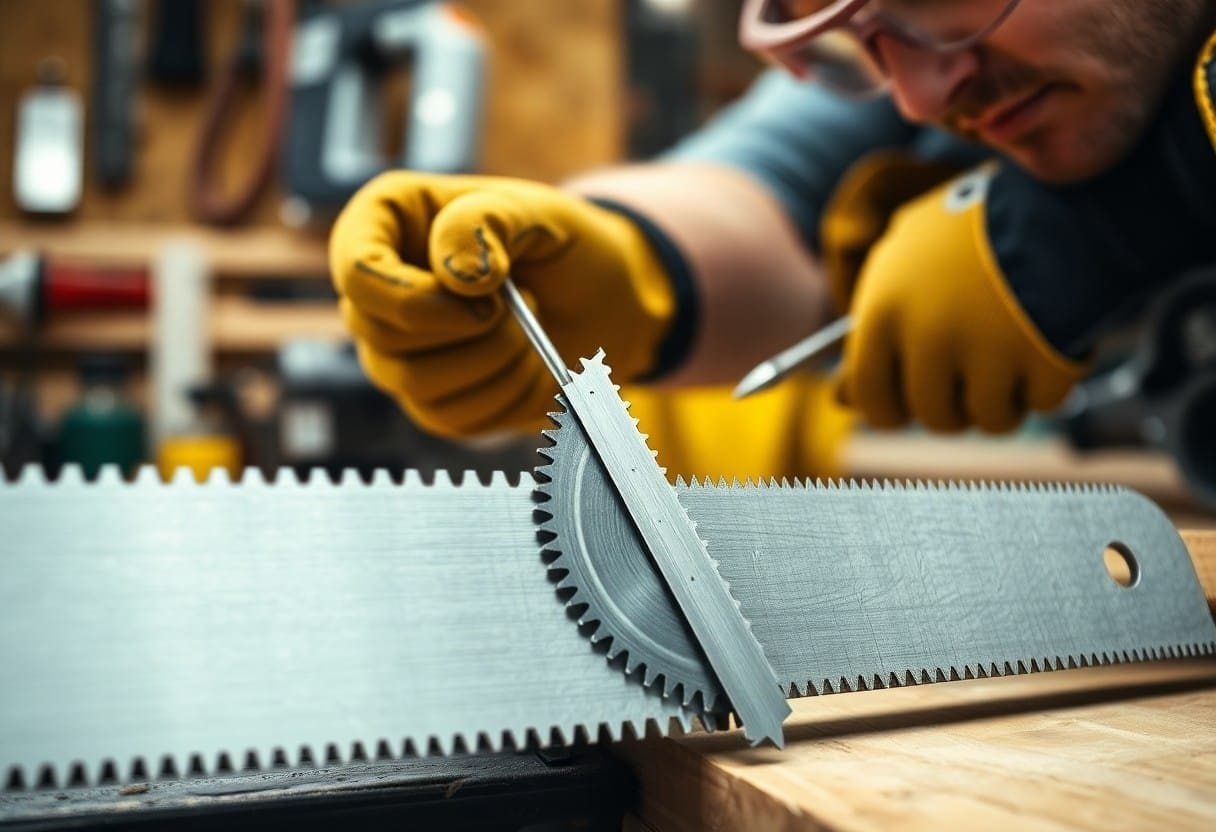Most folks might think power tools are the be-all and end-all of a DIY project, but let me tell you, there’s something truly special about using good old-fashioned hand tools. In this blog post, we’re going to explore why adding hand tools to your DIY arsenal can elevate your craftsmanship, enhance your skills, and bring a sense of satisfaction that power tools just can’t replicate. So grab your favorite chisel, level up your woodworking game, and let’s get to work!
Why Hand Tools Matter
The Joy of Tactile Feedback
Your hand tools are not just mere objects but rather extensions of yourself. When you hold a well-crafted hand tool in your palm, you can feel its weight, texture, and precision. The tactile feedback you receive from using hand tools allows you to connect more intimately with your DIY projects. It’s a sensory experience that heightens your craftsmanship and satisfaction.
Avoiding Battery Anxiety
Any DIY enthusiast knows the frustration of being in the middle of a project only to have their power tool’s battery run out. With hand tools, you never have to worry about charging batteries or finding a power source. You can pick up your trusty hand tool and get straight to work without any interruptions. This reliability and convenience make hand tools an imperative part of any DIY arsenal.
Understanding the benefits of using hand tools, such as the joy of tactile feedback and the freedom from battery anxiety, can truly enhance your DIY experience. Incorporating hand tools into your projects not only elevates the quality of your work but also brings a sense of connection and reliability that power tools sometimes lack.
Improved Precision and Control
Some of the key benefits that come with incorporating hand tools into your DIY arsenal include improved precision and control. When working on detailed projects or tasks that require finesse, hand tools offer a level of accuracy that power tools may sometimes lack.
The Nuances of Hand-Tool Operation
On the surface, using hand tools may seem straightforward, but the truth is that mastering their operation requires attention to detail and practice. The subtle movements and adjustments you make while using hand tools can significantly impact the outcome of your project. With practice, you’ll develop a feel for how much pressure to apply and the angle at which to hold the tool to achieve the desired results.
Mastering the Art of Fine-Tuning
Operation. For instance, when using a hand plane to smooth out a piece of wood, the angle at which you hold the plane and the pressure you exert can determine whether you achieve a perfectly flat surface or end up with uneven patches. By honing your fine-tuning skills, you’ll be able to tackle intricate tasks with ease and produce high-quality results that showcase your craftsmanship.
Cost-Effective and Environmentally Friendly
The Financial Benefits of Hand Tools
Tools are not just handy companions for your DIY projects – they can also save you money in the long run. While power tools may seem faster and more efficient, hand tools are often more cost-effective. They are typically cheaper to purchase initially, require minimal maintenance, and have a longer lifespan since they have fewer moving parts that can break or wear out. By incorporating hand tools into your arsenal, you can save money on tool purchases and repairs over time.
Reducing Electronic Waste
Electronic power tools come with a limited lifespan due to the wear and tear on their motors, batteries, and other electronic components. When these tools reach the end of their life, they often end up in landfills, contributing to electronic waste. By using more hand tools in your DIY projects, you can help reduce the amount of electronic waste generated. Hand tools are typically made from durable materials and can last for generations when properly cared for. By choosing hand tools over electronic ones whenever possible, you are not only making a more environmentally friendly choice but also investing in tools that can be passed down to future generations.
Another benefit of reducing electronic waste by utilizing hand tools is the positive impact on the environment. Electronic waste contains hazardous chemicals that can leach into soil and water sources, posing a threat to ecosystems and human health. By opting for hand tools that have minimal environmental impact and longevity, you are taking a small but significant step towards a more sustainable future.
Increased Safety and Reduced Risk
Minimizing the Dangers of Power Tools
Risk can come with the territory when using power tools in your DIY projects. The fast rotations, sharp blades, and high power levels of these tools can lead to accidents if not handled correctly. By incorporating hand tools into your arsenal, you can minimize the risks associated with power tools. Hand tools typically operate at slower speeds and require more manual control, reducing the likelihood of serious injuries.
A Safer Workshop Environment
Workshop safety should always be a top priority when engaging in DIY projects. By including hand tools in your toolkit, you can create a safer workshop environment for yourself. Hand tools are generally quieter than power tools, reducing the risk of hearing damage over time. Additionally, they produce less dust and debris, contributing to better air quality in your workspace.
Plus, hand tools do not rely on electricity or batteries, eliminating the risk of electric shocks or battery-related accidents. By reducing the reliance on power tools, you can create a more controlled and secure working space for all your DIY endeavors.
Building Confidence and Skill
Many DIY enthusiasts find that incorporating hand tools into their arsenal is like unlocking a whole new level of craftsmanship and expertise. By using hand tools, you have the opportunity to develop muscle memory and perfect your technique, which can significantly enhance your woodworking or crafting projects.
Developing Muscle Memory and Technique
One of the key benefits of using hand tools is the chance to refine your skills through repetition. As you become more familiar with the tools and their functions, you will start to develop muscle memory, making each movement more intuitive and precise. This increased control allows you to create cleaner cuts, smoother finishes, and overall more professional-looking results.
Overcoming DIY Anxiety
For some people, the idea of tackling a DIY project can be daunting, especially if they are not familiar with power tools or machinery. Hand tools provide a more approachable and user-friendly option for beginners or those feeling apprehensive about venturing into DIY. With hand tools, you can work at your own pace, feeling more in control of the process and less overwhelmed by complicated equipment.
For those who may feel overwhelmed at the thought of using power tools, incorporating hand tools into your DIY toolkit can be a great way to ease into the world of woodworking or crafting. Hand tools are often quieter, safer, and require less extensive safety gear, making them a more inviting option for those who may be hesitant or anxious about power tools.
The Bottom Line
Versatility and Adaptability
The Multitasking Capabilities of Hand Tools
Unlike power tools that are designed for specific tasks, hand tools are the ultimate multitaskers in your DIY arsenal. With a single wrench, screwdriver, or pair of pliers, you can tackle a wide range of projects without the need for multiple tools cluttering your workspace. The versatility of hand tools allows you to switch seamlessly between tasks, saving you time and effort.
MacGyvering Your Way to Success
Success in DIY projects often hinges on your ability to think on your feet and come up with creative solutions to unexpected challenges. Hand tools empower you to channel your inner MacGyver and improvise when faced with a problem. Whether you need to tighten a loose screw, pry open a stuck drawer, or trim a piece of wood to fit just right, your trusty hand tools are up to the task.
This adaptability is especially useful when you encounter unique situations that may not have a straightforward solution. By leveraging the diverse capabilities of your hand tools and thinking outside the box, you can overcome obstacles and turn your DIY visions into reality.
Conclusion
Summing up, incorporating hand tools into your DIY arsenal not only enhances the quality of your projects but also provides you with a sense of satisfaction and connection to your work. With the right tools at your disposal, you can tackle a wide range of projects with ease and precision, allowing you to unleash your creativity and craftsmanship. Additionally, using hand tools promotes mindfulness and attention to detail, fostering a deeper appreciation for the process of creating something with your own hands. So, next time you commence on a DIY project, remember the value of having reliable hand tools by your side.
